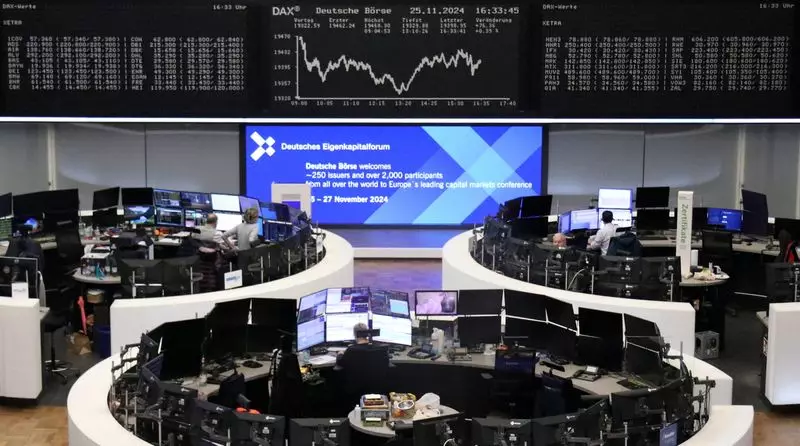European stock markets maintained a steady upward trajectory on Thursday, reaching levels not witnessed in nearly a month. Investors demonstrated a surprising resilience to ongoing political turbulence in France, as the French National Assembly’s recent vote to oust Prime Minister Michel Barnier did not seem to provoke a significant downturn. The pan-European STOXX 600 index edged up by 0.2% as of 0945 GMT, marking the sixth consecutive session of gains. Particularly, the CAC 40, representing France’s equities, experienced a 0.3% increase after briefly reaching a three-week peak during the session.
Barnier’s anticipated resignation on Thursday could potentially position him as the shortest-serving prime minister in contemporary French history. This political upheaval raises concerns regarding the stability of the government, particularly as the country faces a critical deadline for approving its 2025 budget. There are fears that France may conclude the year without a functioning government, reminiscent of political gridlocks witnessed in other democracies. However, the French constitution does provide mechanisms to prevent a severe government shutdown, which some see as a silver lining in this turbulent political landscape.
Market analysts shared insights regarding the investor response to the political developments. According to Susannah Streeter, the head of money and markets at Hargreaves Lansdown, the equity markets had effectively anticipated this motion against Barnier, which likely contributed to the muted market reaction. The reduction in the risk premium demanded for holding French debt compared to German Bunds signifies a collective belief that the fallout from Barnier’s departure might be manageable, reflecting a sentiment of cautious optimism among investors.
Responses varied across different sectors under the shadow of the ongoing political changes. Notably, shares from major French banks such as BNP Paribas, Société Générale, and Crédit Agricole rose between 1.7% and 2.8%. This uptick indicates investors’ confidence in the resilience of major financial institutions despite the governmental uncertainty. On the contrary, other significant players in the energy sector faced mixed performances; Shell’s shares dipped by 1% following news of a joint venture with Norway’s Equinor. In contrast, TotalEnergies benefitted from an upgrade by RBC, resulting in a 1% increase in its share value.
Anticipation is building around President Emmanuel Macron’s upcoming televised address, where he is expected to appoint Barnier’s successor before the ceremonial reopening of the Notre-Dame Cathedral this Saturday. This political maneuvering may influence how investors adjust their strategies in the days to come. The continuity of governance in France remains crucial not just for the French economy but also for broader European market stability. As investors carefully monitor these developments, the capacity for resilience in the face of political entropy will be put to the test.

